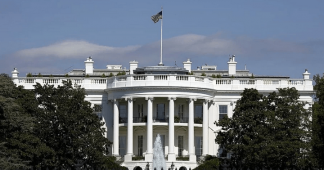The Romanian Constitutional Court’s decision to nullify the election results based on unfounded allegations of Russian interference sets a terrifying precedent
By Thomas Fazi
Dec 11, 2024
I wrote for Compact about the Romanian Constitutional Court’s extraordinary and unprecedented decision to nullify the election results based on unfounded allegations of Russian interference — and why it signals a chilling escalation in the EU-NATO establishment’s increasingly open war on democracy:
“The ruling sets a terrifying precedent. If vague accusations of foreign interference can nullify election results, any future electoral outcome that threatens entrenched elites could similarly be overturned. Unfortunately, what happened in Romania isn’t an outlier. It is an escalation in an all-too-familiar trend now afflicting Western societies, whereby unpopular and delegitimized elites resort to increasingly brazen methods—such as media manipulation, cognitive warfare, censorship, lawfare, economic pressure, and surveillance and intelligence operations—to influence electoral outcomes and suppress challenges to the status quo. Consider that in the United States, the security apparatus and its media allies spent almost the entirety of Donald Trump’s first term attempting to undo the outcome of the 2016 election via the #Russiagate hoax.
In other words, actual disinformation and electoral interference tactics are deployed by the establishment to counter alleged (and often fabricated) disinformation and foreign interference campaigns, usually claimed to be coming from Russia to the benefit of domestic populist politicians and parties. However, such tactics are proving powerless to manufacture consensus and are, in fact, beginning to backfire, which is why even the formal elements of democracy—including elections—are now being called into question.”
I also explain how this decision can only be understood in the context of Romania’s key role as a critical NATO garrison:
“It is no coincidence that these measures are employed most aggressively in those countries with particular strategic value for NATO. Romania is a case in point. The country has been instrumental in providing military aid to Ukraine. Additionally, it is at Romania’s 86th Air Base where Ukrainian pilots receive training on F-16 fighter jets. This facility serves as a regional hub for NATO allies and partners. Moreover, the Mihail Kogălniceanu Air Base, on the Black Sea coast, is undergoing significant development to become the largest NATO base in Europe. This expansion aims to support NATO operations and strengthen the alliance’s presence in the Black Sea region and its control of Russia’s “near abroad”. The Western Alliance clearly can’t afford to allow mere popular sovereignty to jeopardize Romania’s role as a NATO garrison.
No wonder, then, that the US State Department supported the court decision on the grounds that “Romanians must have confidence that their elections reflect the democratic will of the Romanian people”. It’s also highly unlikely that the EU-NATO establishment wasn’t involved in some way or another in the judicial coup against Georgescu. The measures employed to undermine Georgescu are indicative of a broader willingness to erode democratic norms in pursuit of geopolitical objectives. For the same reason, the same powers are attempting to foment a Ukraine-style violent overthrow of the government in Georgia, where the pro-peace ruling party recently won the elections.”
How long before the same measures are deployed against core NATO countries in Western Europe that stray from the alliance’s prescribed path?
We remind our readers that publication of articles on our site does not mean that we agree with what is written. Our policy is to publish anything which we consider of interest, so as to assist our readers in forming their opinions. Sometimes we even publish articles with which we totally disagree, since we believe it is important for our readers to be informed on as wide a spectrum of views as possible.











